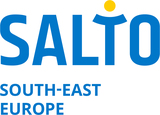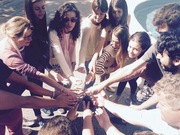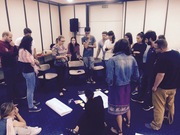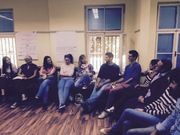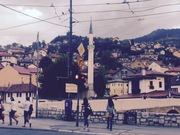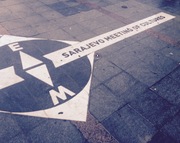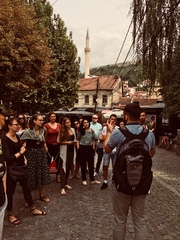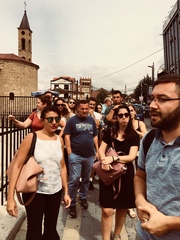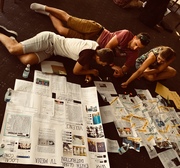“EUtopia”
EUtopia? Diversity in a Changing Europe: Creative youth work lab for rethinking diversity solutions
The educational concept has been developed jointly by the Latvian Erasmus+: National Agency in the field of youth and SALTO South East Europe Resource Centre, and the activity has been running since 2012.
EUtopia? Diversity in a Changing Europe is namely a creative, analytical and critical learning experiment which aims at providing youth field professionals with an opportunity to:
- explore the complex and diverse realities of young people in a changing Europe and prepare to better respond to those realities by applying values-based perspective of diversity and reshaping their youth work practices.
The course concept and outcomes and examples of methods used can be found on the special EUtopia webpage.
The objectives of the lab are:
- to create a community of learners ready to engage in a challenging, self-reflective, long term, dynamic learning process;
- to identify the relevant socio-political and cultural conditions that influence the lives of young people on local and European level;
- to explore the contexts in which young people grow up today, develop sensitivity to identity and culture-related issues that young people are confronted with, and critically evaluate the current youth work responses to them;
- to understand reasoning and motivation behind young people’s views and attitudes, discover how opinions are formed, and practice critical thinking;
- to challenge/radicalise the concept of diversity, exploring it from a values-based, rather than from a normative policy perspective;
- to develop the most relevant competences for reconsidering and reshaping youth work practices that fit the current challenges;
- to develop participants’ own intercultural competence, as defined by the ETS Competence Model for Trainers and the ETS Competence Model for Youth Workers to Work Internationally;
- to incorporate principles of slow youth work in diversity related practices;
- to discover opportunities to incorporate values-based approach to diversity within Erasmus+ activities and to support international cooperation among participants.
